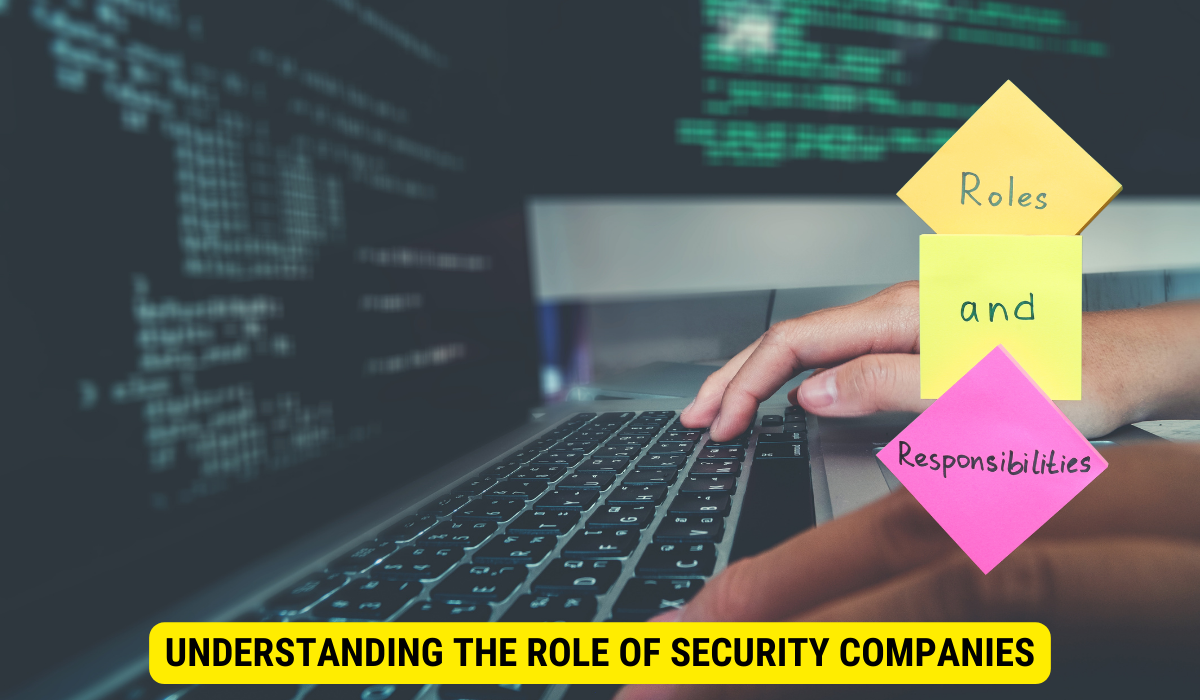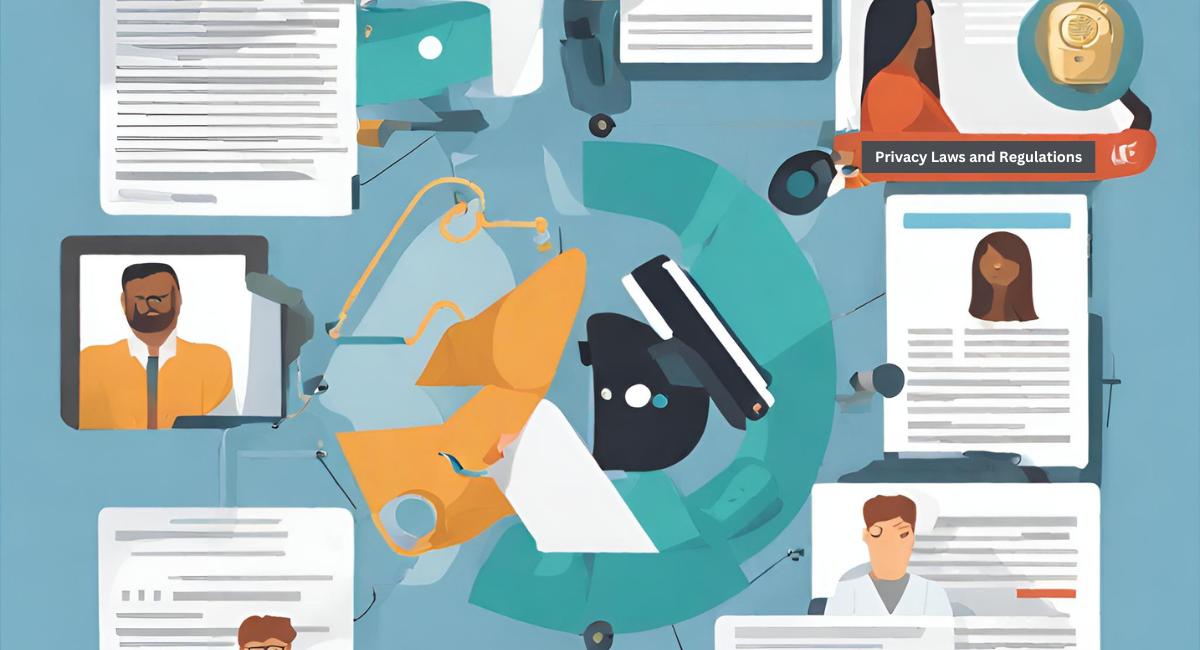Security companies do not have unrestricted access to all our computer data. While they can monitor network traffic, system logs, and potential threats to enhance security, their access is limited by legal, ethical, and user-defined boundaries. Their primary role is to protect, not to invade, privacy.
In an increasingly digital era, data security and privacy concerns are paramount. With the rise of security companies and the extent of their access to our computer data, many individuals are left questioning the extent to which these organizations can infiltrate our digital lives. Understanding the role of security companies is vital in comprehending how they interact with our data and ensuring our personal information remains protected.
Understanding the Role of Security Companies

Regarding safeguarding our digital assets, security companies play a crucial role in protecting against possible threats. These companies offer various services, including data protection, threat detection, and system improvement.
Security companies are at the forefront of defending our digital world from cyber threats. They employ various strategies and technologies to ensure the safety and integrity of our sensitive information. Everyone relies on the expertise of security companies, from large corporations to individual users, to protect their digital assets.
The Basics of Data Protection Services
At the core of security companies’ functions is safeguarding sensitive data from breaches and unauthorized access. These companies strive to protect our personal and confidential information from potential threats through encryption, firewalls, and other advanced security measures.
Data protection services offered by security companies involve a comprehensive approach to securing our digital assets. They employ state-of-the-art encryption algorithms to ensure our data remains unreadable to unauthorized individuals. Additionally, firewalls act as a barrier between our systems and potential attackers, monitoring incoming and outgoing network traffic to detect and block any suspicious activities.
Furthermore, security companies continuously update their security protocols to stay ahead of emerging threats. They conduct regular vulnerability assessments and penetration, trying to identify potential weaknesses in our systems and address them proactively. By staying vigilant and proactive, security companies play a vital role in preventing data breaks and protecting sensitive information.
The Scope of Security Companies’ Access
Understanding the limitations of security companies’ access to our computer data is essential. While they may have access to specific aspects of our digital lives, such as network activity and certain system logs, their accessibility to personal files and documents is often restricted.
Security companies operate within strict legal and ethical boundaries when accessing personal files and documents. They prioritize user privacy and confidentiality, ensuring our personal information remains secure and inaccessible to unauthorized individuals. Their primary focus is on monitoring and protecting the overall security of our systems rather than delving into the specifics of our files.
Moreover, security companies work closely with their clients to establish clear guidelines and boundaries regarding data access. They ensure that any access granted is strictly for security purposes and is conducted transparently and accountable. By maintaining these boundaries, security companies strike a balance between protecting our digital assets and respecting our privacy.
In conclusion, security companies play a vital role in safeguarding digital assets. Through their expertise and advanced technologies, they provide data protection services and detect potential threats to ensure the security and integrity of our sensitive information. While they have limited access to personal files and documents, their primary focus is maintaining our systems’ security. By understanding the role and limitations of security companies, we can make informed decisions and trust them to protect our digital lives.
The Nature of Data Collected by Security Companies
Regarding data collection by security companies, it is important to understand that they focus on gathering information directly relevant to their core functions. This data encompasses many aspects, including potential threats, system vulnerabilities, and network activity. By delving into the types of data that security companies can access, we can better understand how much they intrude into our digital lives.
Types of Data Security Companies Can Access
Security companies gather information about network traffic, system logs, and potential threats. Network traffic data provides insights into the flow of information within a network, allowing security experts to identify any suspicious or abnormal activities. On the other hand, system logs record events and actions taken within a system, enabling security professionals to trace the origin of potential security breaches. Additionally, security companies collect data on potential threats, such as malware or hacking attempts, to stay one step forward and protect their clients’ digital assets.
Furthermore, security companies may also have access to data related to user behavior and activity. This can include information about the websites visited, applications used, and even the duration of user sessions. By analyzing this data, security companies can identify patterns and trends that may specify potential security risks.
Limitations in Data Access
While security companies have access to certain types of data, it is important to note that they are bound by legal and ethical boundaries that restrict their reach. These limitations are in place to ensure that security companies do not infringe upon individual privacy rights or misuse the collected information.
Legal frameworks, such as data protection laws and regulations, dictate how security companies can collect, store, and use data. These regulations aim to balance the need for security and the protection of individual privacy. Security companies must adhere to these laws and obtain proper consent or authorization before accessing and utilizing personal or sensitive data.
Ethical considerations also play a significant role in limiting data access by security companies. They are expected to handle data responsibly and ensure it is used solely to enhance security measures. Any unauthorized use or sharing of data can result in severe consequences, including legal repercussions and damage to the security company’s reputation.
In conclusion, while security companies collect data directly relevant to their core functions, their access is not unlimited. They focus on gathering information about network traffic, system logs, potential threats, and user behavior. However, they are bound by legal and ethical boundaries that aim to protect individual privacy and prevent misuse of collected data.
Legal and Ethical Boundaries in Data Collection
Privacy laws and regulations, along with ethical considerations, shape the boundaries within which security companies operate. These laws dictate the permissible extent of data collection and usage by these organizations, helping maintain a balance between security needs and individual privacy rights.
It is important to note that privacy laws and rules can vary significantly across different jurisdictions. Each jurisdiction aims to protect individuals’ privacy rights by establishing legal frameworks that govern the collection and usage of personal data. These frameworks typically require security companies to get proper agreement from individuals before collecting and using their data. This consent can be explicit, where individuals are fully aware of the data being collected and how it will be used, or implicit, where individuals may not be fully aware but have given consent through their actions or interactions with the security company.
In addition to obtaining consent, privacy laws and regulations emphasize responsible and secure handling of sensitive information. Security companies must implement dealings to protect the confidentiality, integrity, and availability of the data they collect. This involves implementing robust security measures, such as encryption and access controls, to avoid unauthorized access or disclosure of personal data.
Privacy Laws and Regulations

Privacy laws and regulations vary across jurisdictions but aim to protect individuals’ privacy rights. These legal frameworks typically require security companies to obtain proper consent for data collection and usage and to handle sensitive information responsibly and securely.
Furthermore, privacy laws often outline the specific purposes for which personal data can be collected and used. Security companies must ensure that their data collection practices align with these purposes and that they do not collect more data than is necessary for their stated objectives. This data minimization principle helps balance the need for data collection and individuals’ privacy rights.
Moreover, privacy laws also grant individuals certain rights over their data. These rights may include the right to access, rectify, or delete their data and the right to withdraw consent for data collection and usage. Security companies must be prepared to fulfill these rights and provide individuals with mechanisms to exercise them.
Ethical Considerations in Data Handling
Responsible data handling is a core ethical concern for security companies. Ethical guidelines stress the importance of transparency, informed consent, and responsible data stewardship. Adhering to these principles ensures that security companies operate ethically and trustably.
Transparency is a fundamental ethical principle in data handling. Security companies are expected to be transparent about their data collection practices, informing individuals about the types of data being collected, the purposes for which it will be used, and any third parties with whom it may be shared. This transparency allows individuals to make informed decisions about whether or not to provide their consent for data collection.
Informed consent is another crucial ethical consideration. Security companies should ensure that individuals understand the implications of their consent. This includes informing them about the potential risks or consequences of collecting and using their data. Informed consent empowers individuals to make conscious, private, and personal information choices.
Responsible data stewardship is also an essential ethical principle. Security companies are responsible for handling the data they collect in a manner that respects individual’s privacy rights and protects their personal information. This involves implementing appropriate security measures, regularly assessing and mitigating risks, and ensuring authorized personnel only access and use data for legitimate purposes.
Furthermore, ethical considerations also extend to data sharing with third parties. Security companies should carefully evaluate the trustworthiness and privacy practices of any third parties they share data with, ensuring that these parties adhere to similar ethical standards and provide adequate protection for the data.
How Security Companies Use Collected Data
The data security companies collect serves a valuable role beyond mere storage. By analyzing this data, they can detect threats, improve security systems, and enhance overall data protection measures.
Data Analysis for Threat Detection
Security companies use advanced data analysis techniques to identify potential threats and vulnerabilities. Through comprehensive analysis of network traffic, system logs, and other relevant data, they can pinpoint suspicious activities and take proactive measures to mitigate them.
Data Usage for System Improvement
The insights gained from data collected by security companies aid in enhancing system integrity and resilience. By assessing patterns and identifying weaknesses, these organizations can implement necessary updates, patches, and improved security protocols to safeguard against future threats.
Protecting Your Data from Security Companies
While security companies are crucial in maintaining the safety and security of our digital lives, it is essential to implement measures to protect our data from potential intrusions.
Best Practices for Data Privacy
Individuals can adopt best practices for data privacy to mitigate the risk of unauthorized access. These practices include regularly updating passwords, using two-factor authentication, and exercising caution when sharing personal information online.
Tools for Enhanced Data Protection

Utilizing encryption software, virtual private networks (VPNs), and other data protection tools can significantly enhance the security of our digital footprint. These tools offer an additional layer of protection, making it more challenging for security companies and other unauthorized entities to access our data.
Key Takeaways
- Security companies play a vital role in defending the digital world against cyber threats.
- While they can monitor certain data, their access is restricted by legal and ethical standards.
- The core function of security companies is to protect digital assets through encryption, firewalls, and proactive measures.
- Privacy laws and ethical considerations dictate the boundaries of data collection and usage by security companies.
- Individuals have tools and best practices at their disposal to further protect their data from potential intrusions.
FAQs
What is the primary role of security companies?
The primary role of security companies is to protect digital assets from potential threats using strategies, technologies, and expert knowledge.
Do security companies have access to personal files and documents on our computers?
Generally, no. Security companies focus on system security and not the specifics of personal files. Strict legal and ethical guidelines bind any access.
How do security companies protect our data?
They employ advanced measures like encryption, firewalls, regular vulnerability assessments, and penetration testing.
What type of data do security companies usually access?
They focus on data related to network traffic, system logs, potential threats, and sometimes user behavior, but within legal and ethical constraints.
How can individuals ensure their data remains private?
Individuals can adopt best practices such as updating passwords, using two-factor authentication, employing encryption, and using VPNs.
Conclusion
In conclusion, while security companies play a vital role in safeguarding our digital lives, it is crucial to understand the extent of their access to our computer data. By adhering to legal and ethical boundaries, utilizing best practices for data privacy, and leveraging data protection tools, individuals can maintain control over their personal information and ensure its security in an increasingly interconnected world.
